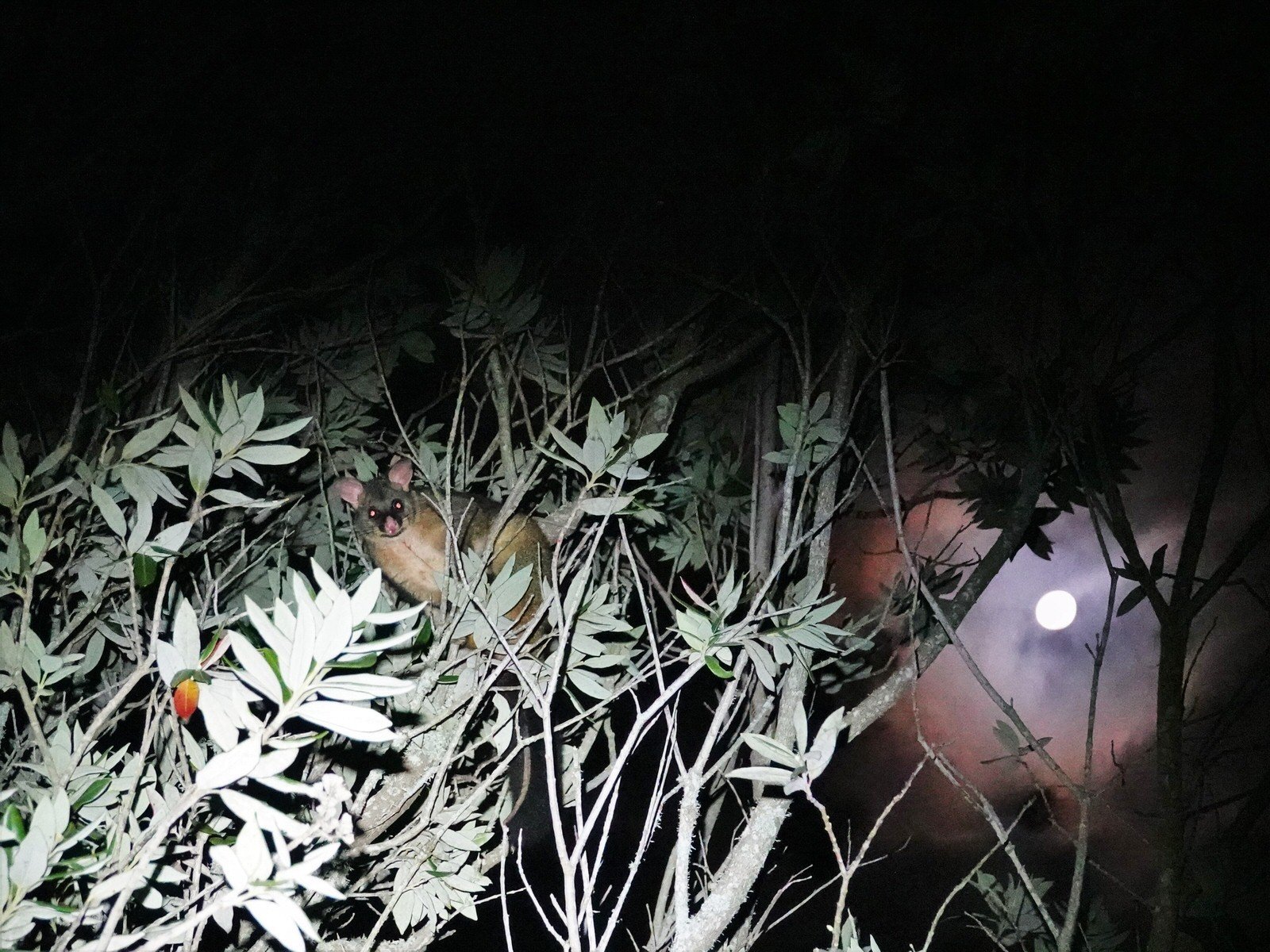
Spotlight on Possums
15th - 23rd of June, anytime after dark.
Get into your backyard and help put the spotlight on possums!
Be part of Dunedin-wide survey to find out how many possums are living among us. Whether you see a possum or not, everyone looking at the same time will help us map where possums are in high (and low) numbers.
This is a great activity for families and nature nerds to contribute towards the vision for a Predator Free Dunedin.
How to take part.
Look for possums!
Between the 15th and 23rd of June anytime after dark, get yourself rugged up warm, and head outside and look for possums. You could look in your backyard or take a walk to your local park or reserve.
Move very quietly!
Shine your light into any nooks and crannies that might be harboring possums - trees are great spots, also fence lines, compost bins and among the bushes. It's a good idea to scope out your spots beforehand in daylight - and remove trip hazards like bikes etc!
Share your results.
If you see a possum, don't freak it out or approach it, just tell us about it. Remember, we also want to know where possums aren't being seen! Use our reporting form to share your possum sightings.
How to spot a possum…
Look and listen for possums in your backyard during the Spotlight on Possums event. You could a torch, the light on your phone, or a more high-powered spotlight if you have one.
-
Possums have a furry body, long bushy tail, short front legs, protruding brown eyes and pointed ears. They can vary in colour from a rich-red brown, to dark brown, and grey with a silver tinge in their fur.
Possums are nocturnal and usually come out at night. If you shine a torch in the trees, you may see their eyes reflect a red light.
-
Listen out for possum calls. They make up to 18 different sounds, which may include grunting, growling, hissing, screeching, and clicking.
-
The main habitat for possums is forest and bushy areas. They will visit people’s backyards, especially to feed on vegetable gardens.
Why are possums a problem?
Possums are a major threat to native wildlife and plants. They eat the leaves, flowers, and fruit of native plants and can strip entire trees.
Possums also eat the eggs and chicks of native birds, and insects like wētā and snails. They also compete with native wildlife by eating the same food and taking over nest sites that would otherwise be used by some native birds.
Predator Free Dunedin is targeting possums across its full operational area. Our goals are to eradicate possums from the Otago Peninsula by 2024, to reduce their numbers to “zero density” across 10,000 hectares in West Harbour Mt Cargill, and to reduce their numbers to low levels in the city and across 35,000 hectares west of State Highway 1.
This event is a joint initiative between Predator Free Dunedin, Otago Peninsula Biodiversity Group, the Halo Project, and City Sanctuary.








